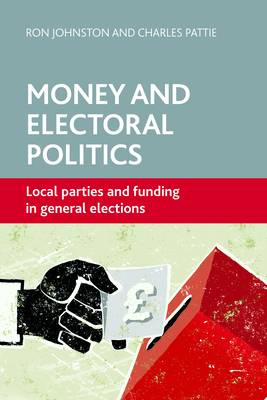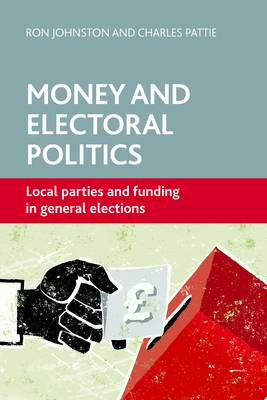
- Afhalen na 1 uur in een winkel met voorraad
- Gratis thuislevering in België vanaf € 30
- Ruim aanbod met 7 miljoen producten
- Afhalen na 1 uur in een winkel met voorraad
- Gratis thuislevering in België vanaf € 30
- Ruim aanbod met 7 miljoen producten
Money and Electoral Politics
Local Parties and Funding at General Elections
Ron Johnston, Charles PattieOmschrijving
Political parties are crucial to British democracy, providing the foundations for mobilising voters. Their constituency branches are key links between voters and Parliamentary candidates and their activities require two vital resources - people and money. Much has been written on the decline of party membership but far less on money.
In this much-needed new book, Ron Johnston and Charles Pattie use the latest research and hitherto unpublished material to explore financial differences across the UK's three main parties in the four years leading up to the 2010 General Election. They look at how much local parties raise for election campaigns and find that the more money candidates spend then, the better their performance. Analyses of their annual accounts, however, show that many local parties are unable to raise all of the money that they are entitled to spend on such campaigns. This reveals an unhealthy picture of grassroots party organisation in which the capacity to engage effectively with many voters is concentrated in a relatively small number of constituencies and is likely to remain so.
This timely and essential book will make a major contribution to the literature on British elections and parties, especially to continuing debates regarding party funding. It will make important reading for academics, students, politicians, civil servants and others interested in this topic.
Specificaties
Betrokkenen
- Auteur(s):
- Uitgeverij:
Inhoud
- Aantal bladzijden:
- 224
- Taal:
- Engels
Eigenschappen
- Productcode (EAN):
- 9781447306313
- Verschijningsdatum:
- 1/06/2014
- Uitvoering:
- Paperback
- Formaat:
- Trade paperback (VS)
- Afmetingen:
- 155 mm x 231 mm
- Gewicht:
- 340 g

Alleen bij Standaard Boekhandel
Beoordelingen
We publiceren alleen reviews die voldoen aan de voorwaarden voor reviews. Bekijk onze voorwaarden voor reviews.









